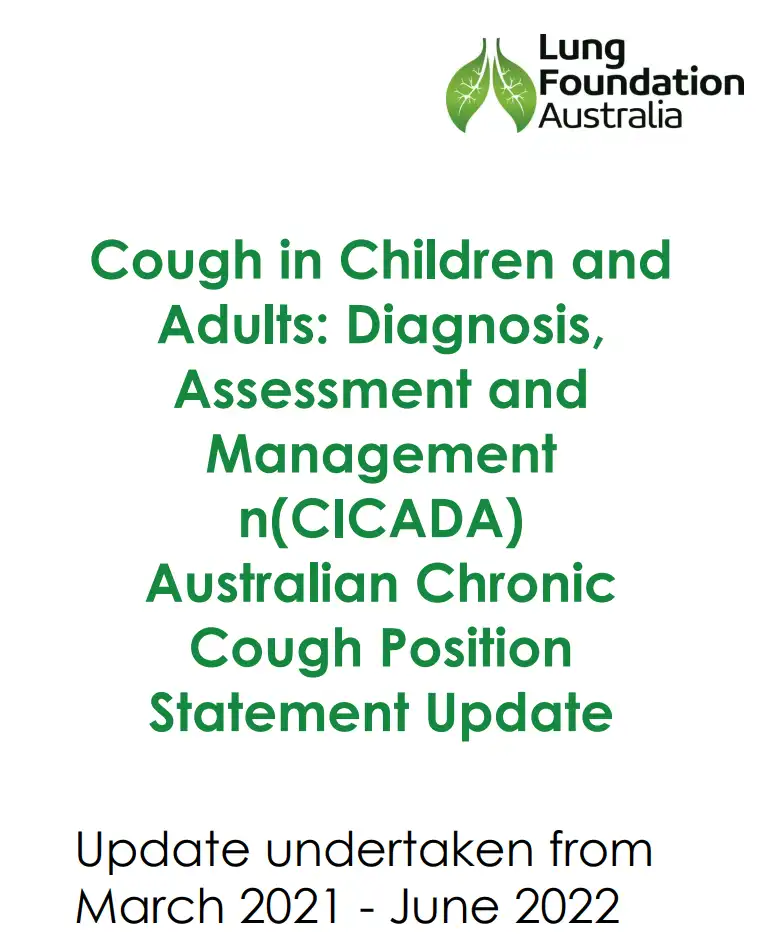The updated CICADA Position Statement, developed by a multidisciplinary expert committee including clinicians, researchers, allied health professionals and consumer representatives, is the most comprehensive Australian guideline on the diagnosis, assessment and management of chronic cough in both children and adults. This evidence-based resource responds to the priorities of the National Strategic Action Plan for Lung Conditions and aims to improve clinical outcomes through standardised, practical guidance. Chronic cough, defined as lasting more than four weeks in children and more than eight weeks in adults, is a common but often poorly managed symptom that can significantly impair quality of life. The statement outlines distinct diagnostic algorithms for both paediatric and adult presentations, incorporating thorough history-taking, spirometry, chest imaging, and identification of red flag symptoms. It also provides probability-based diagnostic tools and detailed guidance on differentiating between specific and non-specific causes of chronic cough.
For children, the document emphasises early identification and management of protracted bacterial bronchitis, asthma, and post-infectious cough, along with strategies to address environmental exposures and family concerns. In adults, it discusses a broad range of potential causes including asthma, eosinophilic bronchitis, GORD, chronic rhinosinusitis, and chronic bronchitis, as well as unexplained and refractory chronic cough.
The position statement stresses culturally appropriate care for Aboriginal and Torres Strait Islander peoples, who are disproportionately affected by chronic lung conditions. It also advocates for multidisciplinary team approaches and the use of validated clinical tools and algorithms in both primary care and specialist settings. The document includes up-to-date evidence on cough neurophysiology, explores emerging therapies, and outlines new frontiers in personalised treatment approaches based on cough hypersensitivity and sensory phenotyping. Overall, this position statement serves as a vital reference for healthcare professionals managing chronic cough and aims to reduce misdiagnosis, improve patient-centred care, and guide future clinical practice and research across Australia.
Was this page helpful?
Good job! Please give your positive feedback
How could we improve this post? Please Help us.
